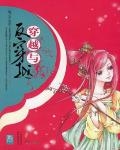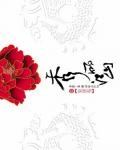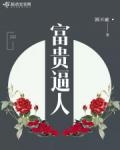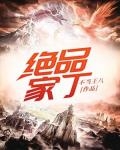Volume 1: A sound on Wall Street, Xinxiang City is busy copying books Chapter 220 The Real Master
Subtitle of this chapter: Sense of the times and sense of identity
"I am Nomura Kichisaburo, the first-class military attaché of the Empire of Japan to the United States."
He said in a very literary way: "Mr. Yuan, your name is well-known to everyone. How great is it to meet you today?"
Yuan Yan suddenly said perfunctorily: "Mr. Nomura, I've heard a lot about you..."
"Master Ball, I don't know this guy well, you better start searching!"
"Host, I understand."
After a quick glance at the information, our Master Yuan said in a much more serious tone: "...I have heard a lot about you!"
This "not very familiar" guy is really worthy of Master Yuan's "long-term admiration". It's not that this guy has very good data in "Admiral's Decision", but he has never appeared in this game at all.
This is because Kichisaburo Nomura was an important supporting character in the history of the Pacific War, and could be described as a combination of an unlucky man and a lucky man.
During the Battle of Shanghai on January 28, 1932, he served as the Vice Admiral Commander of the Third Fleet, which was definitely a good thing for him. However, as fortunes go, disasters follow. Later, when the Japanese held a celebration ceremony in Hongkou Park (now Luxun Park), he was blinded in one eye by a BOOM thrown by .
As the saying goes, those who survive a great disaster will be blessed in the future. In the second year, that is, in 1933, he was promoted to admiral of the navy, reaching the highest peak of his career as a naval soldier.
In 1937, Nomura retired from active service and joined the reserve force, starting his career as a professional politician and diplomat. In 1940, when US-Japan relations deteriorated, he was appointed ambassador to the United States.
The reason why he was able to take up this key position at such a critical moment was that he had a wide range of friends when he served as a naval attaché in the United States, that is, around 1920, and forged a deep friendship with FDR, then Deputy Secretary of the Navy and the savior of the free world. In 1941, Americans called him "General Nomura Yoshisaburo, who was kind-hearted , sincere, and without any cunning."
In December 1941, this "kind-hearted, sincere and without treachery" ambassador to the United States had the misfortune of encountering the Pearl Harbor incident and the unfortunate "14-part telegram".
The so-called "14-paragraph telegram" is the famous Japanese declaration of war against the United States. This telegram is 14 paragraphs long, hence the name. The Japanese Ministry of Foreign Affairs and the embassy in the United States made many mistakes and even dragged their feet in issuing a declaration of war. By the time Nomura handed the declaration of war to the US Secretary of State Hurley, the Japanese air raid on Pearl Harbor had already begun for 50 minutes.
Hurley's words, "I have never seen such a despicable government and such hypocritical and distorted documents in my 50 years in office!" were directed at him.
Naturally, Japan surrendered after these two unfortunate events. Because he was a senior commander during the Battle of Shanghai, he was listed on the list of war criminals provided by the Chinese side.
As the saying goes, "Everything goes wrong for a while, but good things come after bad times." One of Nomura Kichisaburo's American friends turned out to be MacArthur's cousin Malcolm Hardy. Mr. Hardy wrote a letter of appeal for him. After reading the letter, the Japanese emperor released him.
After the war, he was hired by the so-called "God of Management" Konosuke Matsushita as the first president of Japan Victory Corporation (JVC), which was the inventor of the VHS videotape in the 1970s.
Nomura Kichisaburo's experience dispelled Yuan Yanshu's two major "prejudices":
Didn’t they say that the Japanese are meticulous?
What happened to the American people's rule of law?
The two of them exchanged greetings warmly, and then it was the third and final guest, Neon Jin, who came next.
This man said in not-so-good English: "Hello, Mr. Yuan, I am the second-class military attaché of the Empire of Japan to the United States..."
The red flowers of the Rhododendron are blooming so brightly, I finally met a famous figure from World War II...ah...wow!
To be honest, he had met many famous people in history since he traveled through time, including famous people who were well-known to all generations, and some who had a profound impact on history. But none of them could compare to the person in front of him who gave him... well, a special feeling.
Yes, it’s the sense of the times!
As a time traveler, he often feels empty. When he wakes up in the middle of the night, Yuan Yan always wonders why he came here?
Because of the limitations of the Master Ball system, he couldn't do anything, and could only copy books to show off. If he didn't copy these books, someone else would have written them. If he didn't pretend to be cool, then he didn't have to.
But when he saw this little dwarf with two fingers missing from his left hand, our Master Yuan finally confirmed that he had come to a magnificent era! He had become a part of this era! And he would eventually change the direction of human history!
" Yamamoto Isoroku ."
"Master Ball, what do you mean by playing the March of the Battleships?"
"Host, doesn't this song fit your current mood?"
"Master Ball, stop messing around. I need your help on something. Do you think I should pretend to be such a jerk?"
"Host, you are so arrogant that you don't pretend? This is beyond the expectations of this system. What kind of arrogant are you?"
"Master Ball, that's the kind of thing. I looked at him without a word or expression and reported his resume. Just like: Yamamoto Isoroku. Originally named Kono Isoroku, he was born on April 4, 1884 (what a good day) in Nagaoka City, Niigata Prefecture..."
"Host, you are a very good idiot. You can definitely scare these three people. But...if they find out that you, a Chinese, know the detailed resume of a lieutenant colonel, will they think you are a high-ranking agent of the Republic of China and execute you?"
"Master Ball, I really like what you said. I don't want to pretend to be this powerful anymore! Then I'll change to another one."
"Mr. Yamamoto, nice to meet you." Master Yuan pretended to be thinking hard, and after a while he suddenly realized something and said, "By the way, Mr. Yamamoto. Could you be the 'Japanese fugitive' from Harvard University?"
The three Japanese were stunned when they heard this, and only after looking at each other did they understand what the Chinese man was talking about. Even the "Japanese fugitive" Yamamoto Isoroku himself couldn't help laughing awkwardly.
"Hahaha, that's right. Yamamoto-kun is indeed a Japanese fugitive!"
"Hahaha, I didn't expect Mr. Yuan to know about this!"
"Hahaha, Mr. Yuan, how did you know about this?"
Yuan Yanshu also smiled and said, "I also heard about this from my friends at Harvard University..."
At this time, Isoroku Yamamoto had already realized the importance of oil to the war, so he studied energy at Harvard University.
In the middle of this year, he wanted to visit the oil fields in Mexico, a neighboring country of the United States, and applied for inspection funds from the Japanese Consulate in the United States. The Consulate in the United States thought Yamamoto Isoroku's application was absurd and ridiculous, and naturally rejected his request.
However, he still decided to go to Mexico for an inspection at his own expense. Due to the tight budget, Lieutenant Colonel Yamamoto's inspection life can be said to be shabby, and his shabby life makes it hard to imagine that this guy is actually a naval officer of the powerful Japan.
As we all know, Mexico has always been a country with a high crime rate. Yamamoto's weird behavior was seriously inconsistent with his identity as a naval officer, which naturally attracted the attention of the Mexican police.
Therefore, Mexico sent a telegram to the Japanese Embassy and Harvard University: This Isoroku Yamamoto claimed to be a lieutenant commander of the Japanese Navy and a student of Harvard University. His purpose was to come to Mexico to investigate the oil fields. However, he only lived in the attic of the cheapest hotel, and only relied on bananas and raw water to fill his stomach every day. His clothes and appearance were shabby. Please help your country/your university to verify whether this Isoroku Yamamoto was a Japanese fugitive?
Our Master Yuan had a smile on his face, but he was chilling in his heart. These "Showa men" were really...
It’s strange. Why do I, a proud Chinese, feel a sense of identification with them?






